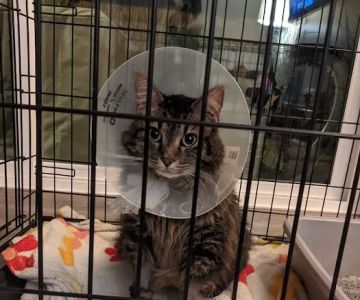Is Veterinarian Considered Health Care?
- Introduction to the Role of Veterinarians in Health Care
- What Constitutes Health Care?
- The Role of Veterinarians in Public Health
- Is Veterinary Medicine Considered Health Care?
- Case Studies: Veterinarians in Health Care Systems
- The Importance of Veterinarians in the Broader Health Care Landscape
- Conclusion: Expanding the Understanding of Health Care
Introduction to the Role of Veterinarians in Health Care
The question of whether veterinarians are considered part of the health care system has been a topic of debate for years. While many people view health care as being exclusively human-focused, the reality is that veterinarians play a crucial role in the overall well-being of society. Whether it's treating pets, overseeing the health of livestock, or ensuring food safety, veterinarians have a significant impact on public health. In fact, veterinary medicine can be seen as a vital component of the health care ecosystem, although it often operates in its own specialized domain. As someone who has explored this topic extensively, I believe it’s important to understand how veterinarians contribute to health care and why their role should not be overlooked in broader discussions about health care systems.
What Constitutes Health Care?
To understand whether veterinarians are considered part of health care, we must first define what health care is. Health care is generally understood as the maintenance and improvement of physical and mental health, primarily through medical services. This includes everything from preventive measures to treatment of diseases, as well as the management of chronic conditions. Most commonly, health care is associated with human health, encompassing services like doctor visits, hospital care, and emergency treatments. However, health care can extend beyond humans to encompass the health of animals, ecosystems, and even food systems, which is where veterinarians come into play.
In the United States, health care is heavily focused on human medicine, which can sometimes result in the undervaluing of veterinary medicine. However, public health experts have long recognized the link between human health and animal health, and the role of veterinarians in addressing issues such as zoonotic diseases (diseases that can transfer from animals to humans) and food safety is critical to protecting both animals and humans. This broader view of health care highlights the importance of veterinarians in safeguarding public health, even if they don't always receive the same recognition as doctors.

6223 Roswell Rd Unit 365A, Sandy Springs, GA 30328, USA
See DetailsThe Role of Veterinarians in Public Health
Veterinarians are vital to public health for several reasons. They work on the front lines to prevent diseases from spreading between animals and humans, which is particularly important in our increasingly interconnected world. For example, veterinarians help monitor and control outbreaks of zoonotic diseases such as rabies, bird flu, and salmonella. By identifying, treating, and preventing these diseases in animals, they help protect human populations from potential outbreaks.
Moreover, veterinarians play an essential role in ensuring the safety and quality of the food supply. They monitor livestock health, ensuring that animals raised for food are free from diseases that could be transmitted to humans. This work is especially important in countries like the United States, where the meat and dairy industries are vast and interlinked with public health. In fact, foodborne illnesses, many of which are related to improper animal health management, cost the U.S. billions of dollars annually in health care costs and lost productivity. Veterinarians are integral in reducing these risks and improving food safety for all.
Is Veterinary Medicine Considered Health Care?
The question of whether veterinary medicine is considered health care largely depends on how we define "health care." If we view health care as the maintenance of well-being for both humans and animals, then veterinary medicine is undoubtedly a form of health care. Veterinarians are trained medical professionals who diagnose, treat, and prevent diseases in animals. They are essential to maintaining the health of pets, livestock, wildlife, and even endangered species. Without their expertise, the health of both animals and humans would be at risk.
Moreover, the importance of veterinarians in public health has been increasingly recognized by the Centers for Disease Control and Prevention (CDC) and other health organizations. For example, veterinarians often work alongside doctors, epidemiologists, and other public health professionals to monitor and control the spread of diseases. In this context, veterinary medicine is indeed part of the broader health care system, as it directly contributes to the protection and well-being of both animals and humans.
Case Studies: Veterinarians in Health Care Systems
There are numerous case studies where veterinarians play an active role in public health systems, demonstrating their integral role in health care. For instance, during the 2009 H1N1 influenza outbreak, veterinarians worked alongside human health experts to monitor and assess the potential risks of the virus spreading from animals to humans. Similarly, veterinarians have been on the front lines of managing wildlife diseases, such as chronic wasting disease in deer, which could have significant ecological and public health implications.
One of the most striking examples of veterinarians working within health care systems occurred during the Ebola outbreak in West Africa. Veterinarians were critical in identifying the origins of the outbreak, working with human health organizations to trace the disease back to certain species of fruit bats and other wildlife. This early detection and intervention were essential in controlling the outbreak and preventing it from spreading further. Cases like these show that veterinarians play a crucial role in the health care system, even when their work is not immediately visible in traditional medical settings.
The Importance of Veterinarians in the Broader Health Care Landscape
Veterinarians are essential not only to animal health but also to the overall health of society. Their work in animal health directly impacts human health, food safety, and environmental protection. By diagnosing and treating animal diseases, veterinarians prevent the spread of zoonotic diseases, safeguard food supplies, and maintain ecological balance. Their work is foundational to the health care system, even though it often operates in the background of human-focused health care.
As we move toward a more integrated approach to public health, it’s important to recognize the value of veterinarians in addressing global health challenges. The One Health initiative, which emphasizes the interconnectedness of human, animal, and environmental health, underscores the need for collaboration between human health care providers and veterinarians. By expanding our definition of health care to include veterinary medicine, we can better address the complex health challenges of the modern world.
Conclusion: Expanding the Understanding of Health Care
In conclusion, veterinarians should absolutely be considered part of the health care system. Their work goes far beyond just caring for pets; they are vital players in protecting public health, ensuring food safety, and preventing disease outbreaks. As we continue to recognize the importance of veterinary medicine in the broader context of health care, we can create a more holistic approach to addressing health challenges that affect both animals and humans. Whether you're a pet owner, a livestock farmer, or simply a citizen concerned about public health, it's crucial to acknowledge the essential role veterinarians play in the health care landscape.










